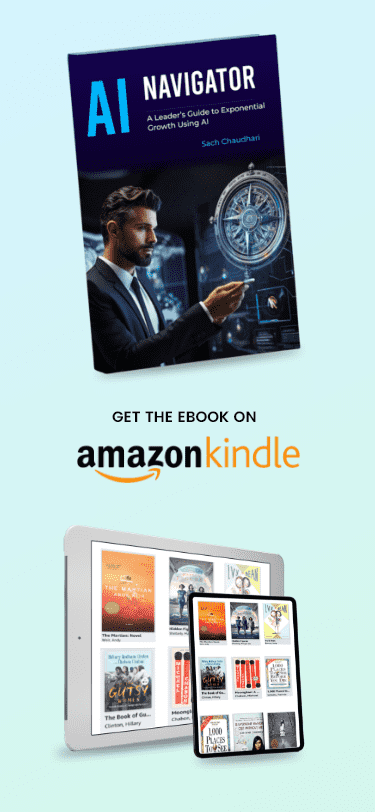Artificial Intelligence (AI) is transforming the way Human Resources (HR) functions, particularly in the hiring process. From automating repetitive tasks to providing data-driven insights, AI is helping companies make smarter, faster, and more equitable hiring decisions. In this article, we’ll explore 15 real-world examples of how companies are leveraging AI in HR to improve recruitment, enhance employee performance, and stay ahead of HR technology trends.
Introduction
The role of HR has evolved significantly over the years. No longer confined to administrative tasks, HR professionals are now strategic partners in driving organizational success. One of the most significant advancements in this field is the integration of AI. By automating time-consuming processes and providing actionable insights, AI is enabling HR teams to focus on what truly matters: people.
In this article, we’ll dive into how 15 companies are using AI in HR, specifically in hiring, performance management, and analytics. These examples will highlight the practical applications of AI recruitment tools, HR analytics, and other innovative technologies.
Importance of AI in HR
AI is reshaping HR by addressing some of its most pressing challenges:
- Efficiency: Automating repetitive tasks like resume screening and interview scheduling.
- Accuracy: Reducing human bias in hiring and performance evaluations.
- Insights: Providing data-driven recommendations for better decision-making.
- Scalability: Enabling HR teams to handle large volumes of applications and data.
By leveraging AI, companies can not only streamline their HR processes but also create a more inclusive and engaging workplace.
Overview of AI Applications in Hiring
AI is being used in various stages of the hiring process, from sourcing candidates to onboarding. Below are some key applications:
- Resume Screening: Automating the initial screening of resumes to identify top candidates.
- Interview Scheduling: Using AI to coordinate interviews based on availability.
- Candidate Engagement: Deploying chatbots to answer candidate queries and provide updates.
- Predictive Analytics: Assessing candidate fit based on historical data and performance metrics.
- Sentiment Analysis: Analyzing candidate feedback to improve the hiring process.
Let’s explore how 15 companies are implementing these applications.
AI Recruitment Tools
Company 1: Automating Resume Screening
A leading tech company uses AI-powered tools to screen thousands of resumes in minutes. The system analyzes keywords, skills, and experience to shortlist the most qualified candidates, saving HR teams countless hours.
Company 2: AI-Powered Interview Scheduling
A global consulting firm has implemented an AI tool that syncs with candidates’ and interviewers’ calendars to schedule interviews seamlessly. This eliminates the back-and-forth emails and ensures a smooth candidate experience.
Company 3: Predictive Analytics for Candidate Fit
A retail giant uses predictive analytics to assess how well a candidate aligns with the company’s culture and job requirements. By analyzing data from past hires, the system identifies patterns that correlate with success in specific roles.
Company 4: Chatbot for Initial Candidate Engagement
A financial services company has deployed an AI chatbot to interact with candidates during the early stages of recruitment. The chatbot answers FAQs, provides updates on application status, and even schedules interviews.
Company 5: Sentiment Analysis in Feedback
A healthcare organization uses sentiment analysis to evaluate candidate feedback after interviews. This helps HR teams identify pain points in the hiring process and make necessary improvements.
HR Analytics in Decision Making
Company 6: Data-Driven Recruitment Metrics
A software company leverages HR analytics to track key recruitment metrics, such as time-to-hire and cost-per-hire. This data enables them to optimize their hiring strategies and allocate resources more effectively.
Company 7: Real-Time Employee Performance Insights
A manufacturing firm uses AI to monitor employee performance in real-time. The system provides managers with actionable insights, helping them address issues before they escalate.
Company 8: Turnover Prediction Models
A hospitality chain has developed an AI model that predicts employee turnover. By identifying at-risk employees, the company can take proactive measures to improve retention.
AI in Performance Management
Company 9: Continuous Feedback Systems
A media company has replaced annual performance reviews with an AI-driven continuous feedback system. Employees receive real-time feedback, enabling them to make immediate improvements.
Company 10: Goal Setting and Tracking
An e-commerce platform uses AI to help employees set and track their goals. The system provides personalized recommendations based on individual performance and career aspirations.
Company 11: Personalized Training Recommendations
A logistics company uses AI to identify skill gaps and recommend tailored training programs. This ensures that employees are equipped with the skills needed to excel in their roles.
HR Technology Trends
Company 12: Integrating AI with Existing HR Systems
A telecommunications company has integrated AI with its existing HR software to create a unified platform. This integration streamlines processes and provides a seamless user experience.
Company 13: Blockchain and AI for Secure Hiring
A cybersecurity firm combines blockchain and AI to enhance the security of its hiring process. Blockchain ensures the authenticity of candidate credentials, while AI verifies their suitability for the role.
Company 14: Diversity Hiring Through AI
A consumer goods company uses AI to promote diversity in its hiring process. The system identifies and eliminates biased language in job descriptions and ensures a fair evaluation of candidates.
Conclusion
The examples above demonstrate the transformative potential of AI in HR. From automating mundane tasks to providing deep insights, AI is helping companies make better hiring decisions, improve employee performance, and stay ahead of HR technology trend.
As AI continues to evolve, its applications in HR will only expand. Companies that embrace these technologies today will be better positioned to attract top talent, foster diversity, and drive long-term success.
Key Takeaways
- AI recruitment tools are streamlining the hiring process by automating tasks like resume screening and interview scheduling.
- HR analytics is enabling data-driven decision-making, from recruitment metrics to turnover prediction.
- AI in performance management is helping companies provide continuous feedback and personalized training.
- HR technology trends like blockchain and diversity-focused AI are shaping the future of HR.
By leveraging these examples of AI in HR, companies can create a more efficient, inclusive, and forward-thinking workplace.










